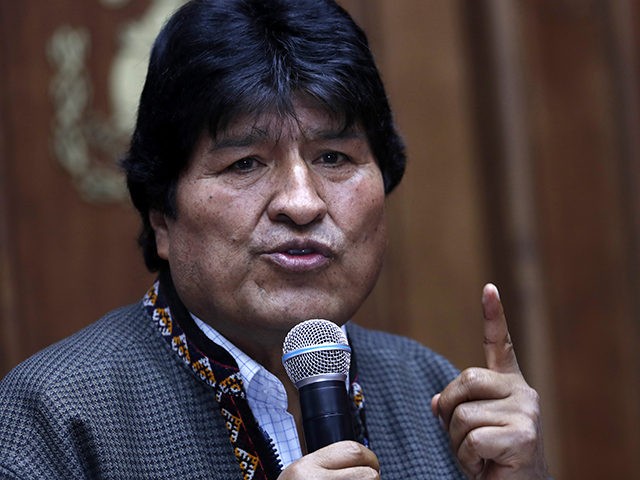The new conservative administration in Bolivia re-established relations with the United States on Tuesday, weeks after far-left leader Evo Morales resigned from office after rigging the outcome of his fourth presidential election.
Foreign Minister Karen Longaric nominated the country’s former ambassador to the United Nations, Walter Serrante, Bolivia’s new ambassador to the United States, thus resuming diplomatic relations between the two countries for the first time in 11 years. The U.S. Congress must now approve his nomination.
Ties between the two countries collapsed in 2008 after Morales accused the U.S. ambassador, Phillip Goldberg, of meddling in the country’s internal affairs by supporting anti-communist opposition and expelled him from the country.
After flexing his “anti-imperialist” credentials, Morales instead sought to recalibrate his foreign policy around strong relationships with other socialist regimes in Cuba, Venezuela, Nicaragua, and Iran. In a tit-for-tat move, the Bush administration also removed Bolivia’s ambassador to Washington, Gustavo Guzman, from his office.
The resuming of diplomatic ties represents another move in Latin America away from Cuban-inspired communism under former senator and staunch anti-socialist President Jeanine Áñez.
Immediately after taking office, Áñez broke off diplomatic ties with Castro’s Cuba and the Maduro regime in Venezuela, both of which have now lost a vital regional ally. Áñez also joined the majority of of Western democracies in formally recognizing Venezuelan President Juan Guaidó as legitimate. Áñez also dismissed all of Bolivia’s ambassadors appointed under Morales except for those to the Vatican and Peru.
Morales voluntarily resigned after the Organization of American States (OAS) published a preliminary report revealing substantial evidence of fraud in the October 22 election that Morales claimed won him an illegal fourth term in office.
Violent socialist supporters have rioted consistently in the streets since Morales fled to Mexico, resulting in the deaths of 29 people.
On Sunday, Bolivia’s congress approved a bill that would allow for fresh elections but which excludes Morales.
According to the Bolivian Foreign Ministry, at least 20 former members of Morales’ government have sought asylum in the Mexican embassy in La Paz. Five of them, including former senior minister Juan Ramon Quintana, are facing arrest warrants on charges of sedition and terrorism.
Follow Ben Kew on Facebook, on Twitter at @ben_kew, or email him at bkew@breitbart.com.

COMMENTS
Please let us know if you're having issues with commenting.